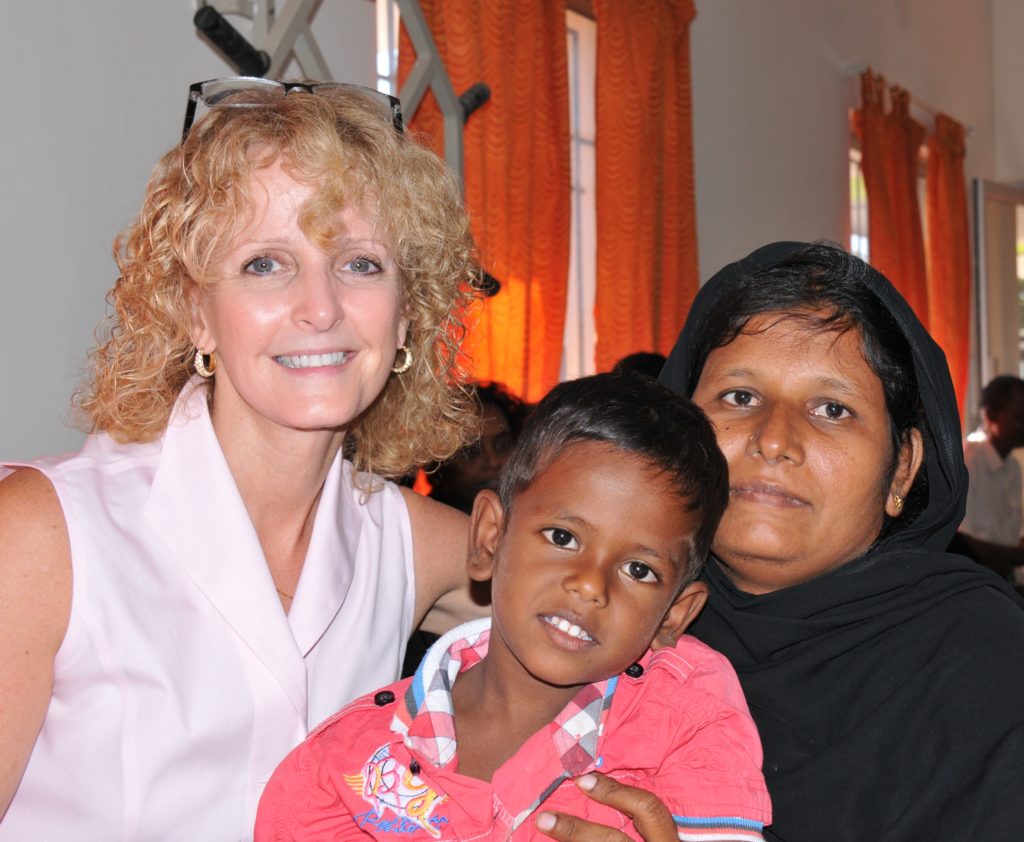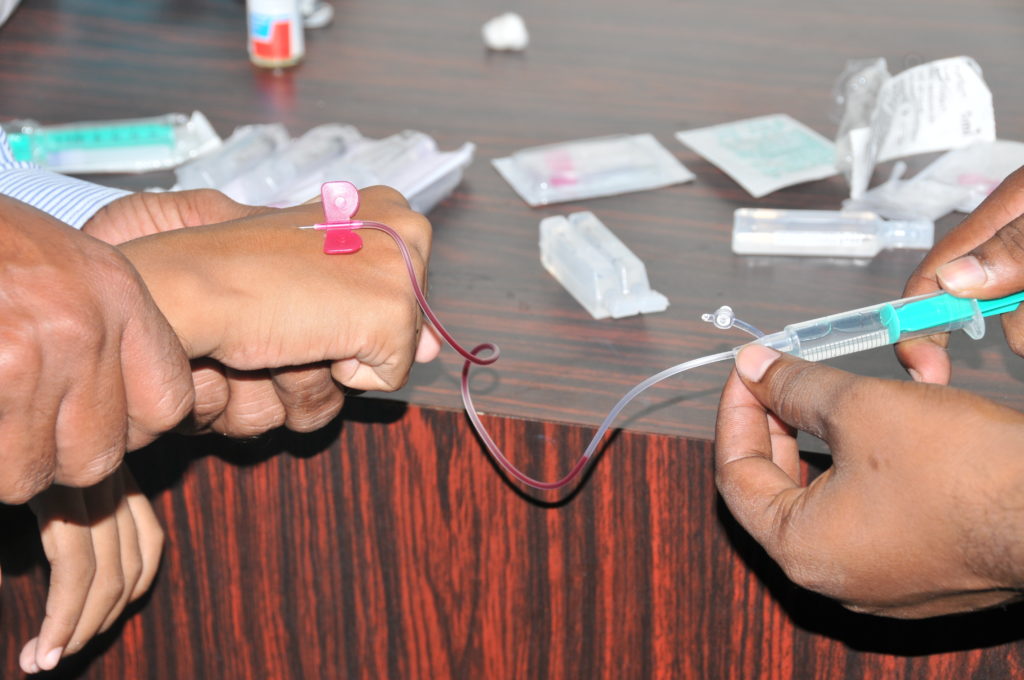“I only want to help…”
It’s disturbing when we see the photo of an impoverished African child with hemophilia who is in pain or has chronic joint damage.
And we feel helpless when we get a Facebook request for factor from a desperate young man with hemophilia in Asia. As patients, we can feel their pain. As parents of children with bleeding disorders, we want to alleviate their suffering. Yet in our desire to do good, we may end up doing something not so good. We may send factor, on our own, to a place we’ve never visited, to people we don’t know. But won’t our generosity help them? What could be wrong with that?
Plenty.
In our efforts to help, we may make several serious mistakes.
Here’s what to look for if you receive an international request for help.

Pondicherry, India
Is the request for real?
This is your first question. Just because someone says he has hemophilia and needs factor, this doesn’t mean he actually does. At Project SHARE, we do extensive background checks with the local physicians and hemophilia organization (if there is one) to verify the need. And even if the request is valid, don’t forget that English is not the first language in most developing countries; it’s easy to get request mix-ups, dosage errors, even incorrect diagnoses.
SHARE keeps reference files on every one of the hundreds we have helped. We must be sure we have valid and accurate information. If you are approached, always realize that there may be missing information, so ask questions. We always ask for diagnosis, physician’s name and contact info, whether the patient knows how to self-infuse, and how far he lives from an HTC, for starters.
Should a private citizen ship factor?
Factor is a biological drug that requires careful shipping and handling. It’s expensive to ship and must travel via international carrier, such as FedEx. Factor can’t be left on trucks, on planes, or in warehouses. And addresses can be tricky overseas!
In India, for example, one of my favorite addresses is “Next to Camel Lot, behind Cinema.”
Are you familiar with the country’s customs laws? Who will pay the duties, or the tax on the shipment? It may even be illegal for you to ship these products; do you know the penalties for shipping a prescription drug over international borders? If you are employed by a hemophilia organization or HTC, are you putting that entity at risk? Whether you’re a private citizen or employed by a healthcare agency, if you are unsure about duties, penalties, and costs, don’t take the risk—don’t ship.

Vijayawda, India
What if the person is asking to come to the States for treatment?
Just say no. Most medical problems related to bleeding disorders can be handled locally, in the country’s capital. India and Pakistan, for example, have some of the best hematologists on earth. The biggest obstacle to care is often not the lack of doctors or expertise, but the lack of factor. At Project SHARE, we’ve found that many requests to come to the States are not for treatment but for job opportunities, college, or the chance to join relatives, either legally or illegally. Hemophilia is a ticket to get in. Be careful!
“It’s an emergency!”
Emergencies are hard to fix. Often, by the time Project SHARE ships factor, the emergency has passed—for better or worse. Declaring an emergency is sometimes a way for a patient, HTC, or hemophilia organization to acquire donated factor; whether it will be used for the emergency remains to be seen. We must assess the nature of the emergency to see whether a shipment will even help. If it’s surgery that can wait five days, then we can ship. Once, we saw a devastating photo of a baby in ICU with a head bleed…and we knew no factor shipment was going to help. We declined.
Check locally first.
All requests should first be vetted through the local and/or national hemophilia organization in a country. India has more than 65 chapters, so local is best. By contrast, the Dominican Republic has only one national organization. You can hop online and check the World Federation of Hemophilia’s website (www.wfh.org) to get the name and email of a national organization. But with over 100 member countries, this can be time-consuming and may not produce all the info you need.
Not speaking the patient’s local language may make it hard to communicate! At Project SHARE, we’ve found that we can resolve a lot of questions by informing the local organizations, whose staff often speak English, about requests that are coming from their members directly to the United States. Our goal is never primarily to “rescue” a patient, but to turn the request back to the national organization, to allow it a chance to help, and to strengthen its ability to solve problems.
Social media like Facebook creates connections between the developed and developing world. At SHARE we’ve seen many requests for factor and medical help come through Facebook to nice—but often inexperienced—hemophilia families and organizations who want to help. Americans are generous but aren’t always familiar with the international world. Be careful. Don’t risk losing a shipment of factor. Don’t weaken the local or national groups by training patients to come to you first instead of to the national organizations. Don’t be duped by people who end up getting the lion’s share of donated factor because they know how to use Facebook and email—people who pump out simultaneous requests to many developed countries and organizations.
What can you do that will really help?
Contact Project SHARE. We have been working with more than 65 countries for 17 years, and we’ve shipped over 144 million IU of factor. We’ve seen and heard just about every scenario, and we can make decisions about factor that will give help where it’s most needed, strengthen the national or local hemophilia organizations, and ensure that factor goes to patients with bleeding disorders. Consider us your US experts on hemophilia international aid. Like you, we want to help. Let us help you give help, effectively and efficiently.
© The Parent Empowerment Newsletter (PEN) 02.13 Subscribe for free at www.kelleycom.com .

